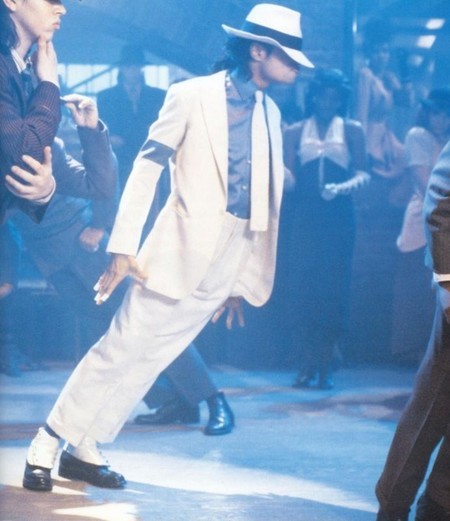What makes things popular? Often, new stuff is popular, just because it’s new. It’s there – and it wasn’t there before. It doesn’t necessarily mean it’s better.
This thought struck me as I was walking down the street on the weekend. I walked past a razor shop, and saw a whole heap of brand new electric razors. All the latest bells and whistles in razor technology. Genuine improvement, genuinely better than the electric razors of two years ago. Two doors up the road was JB Hi-Fi, all of the latest and greatest in music, games, movies and technology. New stuff. But very little of it was an improvement. Some of it was simply slightly different, but newly released.

So, how do punters differentiate between the mass of existing ideas and products – they have a generic choice:
- Stuff that is better
- Stuff that is new
Thriller should be in the top album charts – always. As should Saturday Night Fever. Along with AC/DC’s Back in Black, and Whitney Houston’s The Bodyguard soundtrack. They are some of the best albums of all time – timeless classics, incredible artistry, superb songwriting and incredible production. However, they are nudged out by the newly released such as the utterly appalling Susan Boyle. It’s the same with films; Star Wars should be showing in cinemas all over the world these holidays, in the top selling DVDs, but instead we get Chipmunks – The Squeakquel. Sales charts are dominated by the newest releases, not the best.
Broadly speaking, companies with a strong focus on technology, research and development are good at making things better. For example, electric razors, microwaves, DVD players, iPods, computer software all get better with every iteration. Computer games are the perfect example (in stark contrast to other creative entertainment) where sequels are consistently better than the previous product. They get better. People are used to the new being better, because these companies train their customers to recognise that new = better. They largely deliver on that promise.
Again, broadly speaking – movie sequels and follow up albums suck, but still find a level of popularity because they are new. Politicians struggle to convince voters that they have an ongoing bias for policy innovation – because they generally don’t do anything anything better, they do things that are new. When politicians do genuinely reform, where they do make things better – witness Australia over the past 15 years – it’s regarded as a rarity. The media’s love affair with many politicians is often based on them not being better, but being NEWsworthy. Restaurants don’t often do things better, they do things that are new. New dishes, new menus, new decor, new music. The ones that do it better outlast the ones that do new things.

Subjectivity does play a role here of course, so these organisations expend a massive amount of effort in convincing people that their new is better, even though it’s generally not. Politicians try and convince people that their new policy will lead them to a far better quality of life. The restaurants try and convince their diners that their new dishes are the best they’ve ever tasted. Movie distributors try to fill their trailers with quotes saying their show is “the funniest film ever”. Music companies rarely have releases that are better than things past, but they are just new, so they try in vain to prove that they are better: “Madonna’s best album yet”. They must convince people with all of their might that new = better.
So, why are things popular if they are only new – not better? why the hell do people fall for it? Because these organisations make these new products remarkable.
Three types of remarkable:
- Remarkable: Different, incredible, reactionary, inspiring – genuine innovation
- Re-Markable: Provides people with a new way of looking at / using an existing product
- Remark-able: Worthy of remark and discussion due to an overwhelming story or point of interest
Some things have two of these qualities (Susan Boyle – fat competition winner that you talk about with your friends, singing old songs in a new way), some have all three (iPod – amazingly innovative means of listening to music in a new way that you want to tell your friends about).
If you can be remarkable, you can rise above the vast back catalogues of human creation, rise above the better, and simply become the new – therefore implying a sense of better. Not to say that’s better, it’s simply remarkable.
So which category do you or your organisation fall into? New or Better? Either? What steps can you take to be both?